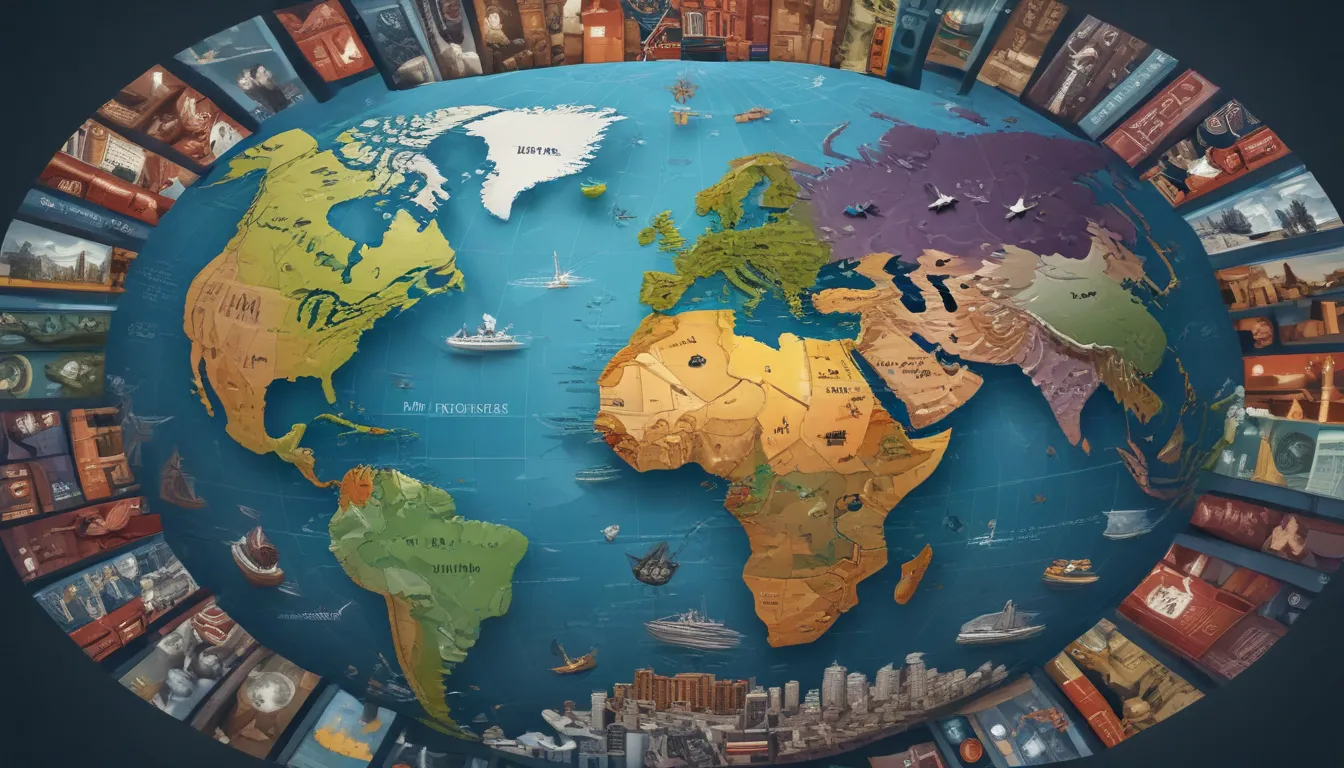A Note About Images: The images used in our articles are for illustration purposes only and may not exactly match the content. They are meant to engage readers, but the text should be relied upon for accurate information.
Are you curious about the intricate relationship between geography, politics, and international relations? Geopolitics is a captivating field that delves into how the physical characteristics of a region shape the strategies, decisions, and interactions of nations and states. By exploring the dynamics of geopolitics, we can gain a deeper understanding of global conflicts, alliances, and power distribution on a global scale.
Embracing Geopolitical Insights
Geopolitics plays a crucial role in determining international relations and the global balance of power. By analyzing the influence of geography, resources, and national interests on political interactions between countries, we can unravel the complex web of relationships that define the geopolitical landscape.
Unveiling the Origins of Geopolitics
The term “geopolitics” was coined in the 19th century by Swedish political scientist Rudolf Kjellén. He defined it as the study of the influence of geographic factors on state policies and international relations. While physical geography is important, geopolitics also considers human geography factors such as population, culture, technology, and economic systems.
Exploring Key Geopolitical Concepts
The Heartland Theory, proposed by British geographer Halford Mackinder, suggests that control over the Eurasian landmass, particularly the area known as the “Heartland,” grants a nation significant geopolitical power. This theory highlights the strategic importance of certain regions in shaping global politics.
Understanding Military Strategies
Geopolitics influences military planning and strategy by considering factors such as terrain, proximity to resources, and strategic chokepoints. By understanding the geopolitical dynamics of a region, countries can make informed decisions regarding military deployments and operations.
Examining Resource Competition
Scarce resources like oil, water, and minerals can create geopolitical tensions and rivalries between nations. Control over strategic resources often plays a significant role in shaping geopolitical conflicts and alliances on the global stage.
Unraveling Historical Impacts
Throughout history, empires have risen and fallen based on their ability to navigate geopolitical challenges. The control of strategic territories, trade routes, and key geopolitical locations has been decisive in shaping the trajectory of empires and colonies.
Navigating Economic Alliances
Geopolitical factors play a crucial role in shaping economic alliances and trade partnerships among countries. Shared interests in security, resource access, and economic integration can lead to the formation of regional blocs and trade agreements that impact global commerce.
Addressing Border Disputes
Many border disputes between countries stem from geopolitical tensions related to territorial claims, resource access, and strategic considerations. These disputes often have deep-rooted historical and geopolitical underpinnings.
Embracing Technological Advancements
Advancements in technology, particularly in communication and transportation, are reshaping geopolitical landscapes. Innovations in cyberspace, surveillance technologies, and unmanned aerial vehicles are changing how nations project power and influence on a global scale.
The Significance of Geopolitics
Geopolitics is a driving force behind global affairs, influencing foreign policy decisions, diplomatic relations, and military strategies. By understanding its complexities, we can gain valuable insights into the power struggles, alliances, and conflicts that shape our world today.
Conclusion: Embracing the Power of Geopolitics
In conclusion, geopolitics is a fascinating field that sheds light on the intricate relationship between geography and politics. By exploring the impact of natural resources, historical influences, and technological advancements on the geopolitical landscape, we can better comprehend the complexities of global dynamics.
FAQs About Geopolitics
- What is geopolitics? Geopolitics is the study of the influence of geographic factors on political relations and international affairs.
- Why is geopolitics important? Geopolitics helps us understand the underlying factors that shape nations’ behavior, alliances, conflicts, and strategies.
- How does geography affect geopolitics? Geography determines access to resources, influences trade routes, creates borders, and affects the strategic positioning of nations.
- Can geopolitics predict conflicts and alliances? Geopolitical analysis can provide insights into potential conflicts and alliances by examining historical patterns and geographical factors.
- Are there any ethical concerns with geopolitics? Ethical concerns can arise when national interests override humanitarian considerations or lead to resource exploitation.
- Can technological advancements alter geopolitics? Technological advancements can impact geopolitics by changing warfare dynamics, trade routes, and resource access opportunities.
- Is it possible to alter a country’s geopolitical position? Political and diplomatic efforts can influence a country’s geopolitical position through alliances and negotiations.
- Are there limitations to studying geopolitics? Geopolitics is complex and influenced by ever-changing global dynamics, leading to inherent limitations in predicting all aspects.
- How can individuals benefit from understanding geopolitics? Individuals can gain insights into global affairs, make informed decisions, and comprehend the factors shaping our world by understanding geopolitics.
By exploring the world of geopolitics, we gain valuable insights into the intricate relationships that define our global landscape. From military strategies to economic alliances, the impact of geopolitics is undeniable. Let’s continue to unravel the complexities of geopolitics and navigate the dynamic world of international relations together.






